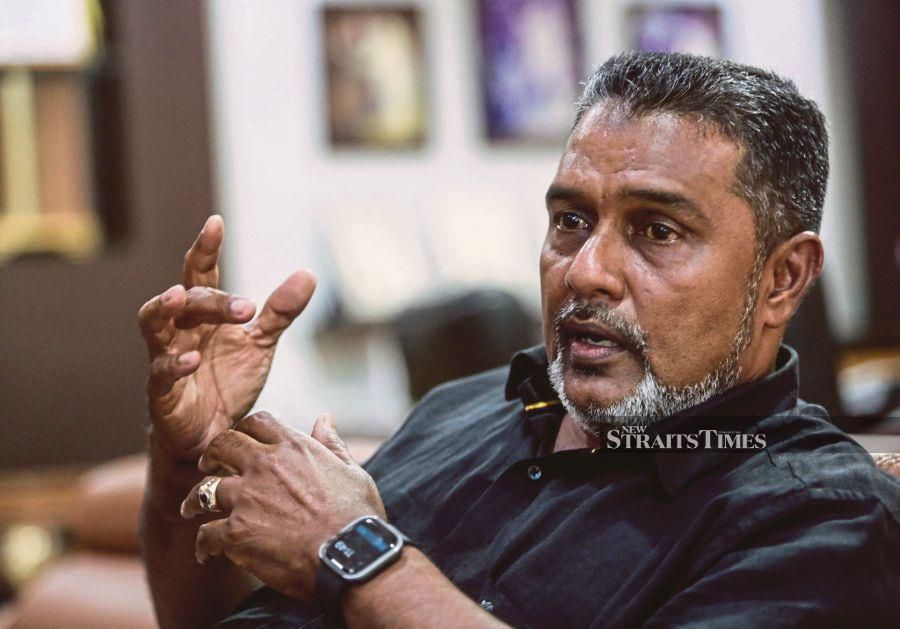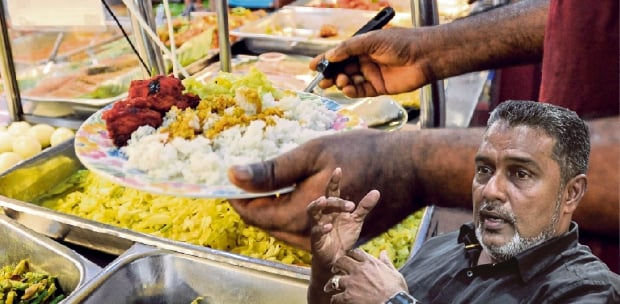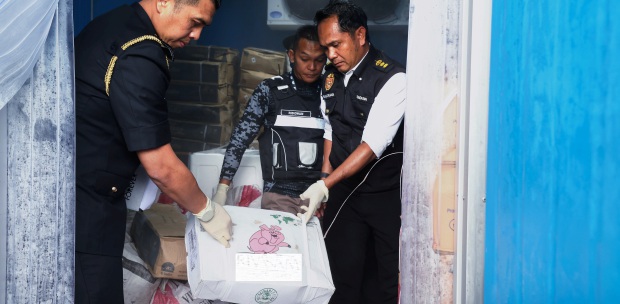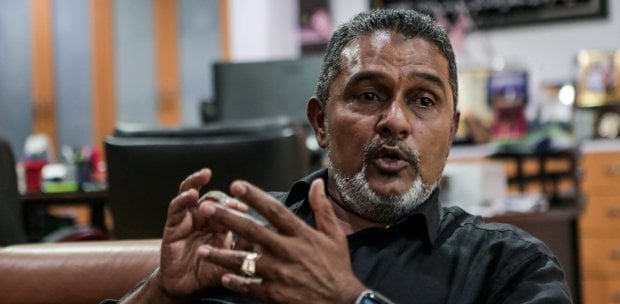KUALA LUMPUR: The Malaysian Muslim Restaurant Owners Association (Presma) said they have no choice but to accept the term 'Nasi Kandar Babi' now since the stall owner clarified it is only for non-Muslims.
Speaking to the New Straits Times today, Presma president Datuk Jawahar Ali Taib Khan said netizens should understand the origins of Nasi Kandar before commenting on the issue.
"One must understand that Nasi Kandar was originally introduced by mamaks (Indian Muslims). It is a halal food where a plate of rice is sold by mixing various curries. Customers believe all Nasi Kandar sold at various outlets are halal Muslim food.
"Nasi Kandar Babi creates confusion among customers. It has made Nasi Kandar a questionable term, creating negative implications as it has always been perceived to be halal.
"Of course, we cannot ask the name of Nasi Kandar to be given exclusively to us (the Indian Muslim community). But mislabeling it is the crux of the argument.
"The Nasi Kandar Babi seller has given his explanation, and we have to accept it. He has clearly stated that he is not selling to Muslims," he said.
Moreover, Jawahar heard about netizens who misunderstood the issue when they thought a mamak trader was selling this non-halal version of Nasi Kandar when it turned out the Nasi Kandar Babi stall owner was a non-Muslim.
"I have no issue as long as Nasi Kandar Babi is not sold in the mamak (restaurants) or any halal eateries.
"I have an issue with netizens thinking the mamak is selling non-halal food like Nasi Kandar Babi," he said.
Jawahar Ali emphasised that mamak eateries are mostly run by Indian Muslims.
"We ensure that all the food prepared at the Mamak follow halal certification requirements.
"The word Mamak should not be tainted. The word itself should be observed as a halal eatery," he said when contacted by the NST today.
Jawahar said the association and himself ultimately respect the rights of others to enjoy delicacies as they want.
"Malaysia is a multiracial and multicultural country. Obviously, we have no right to say that a certain dish must be halal or served in a certain way," he said.
A video of a woman promoting a non-halal version of Nasi Kandar with a pork dish served at a non-halal eatery went viral recently.
The video showed a girl promoting the non-halal Nasi Kandar by describing the pork varuval as one of the best dishes to have at the stall she visited.
Nasi Kandar is believed to have originated in the early 1900s, when itinerant Indian Muslim vendors would sell curry and rice to the dock employees of Weld Quay, located in George Town, Penang.





